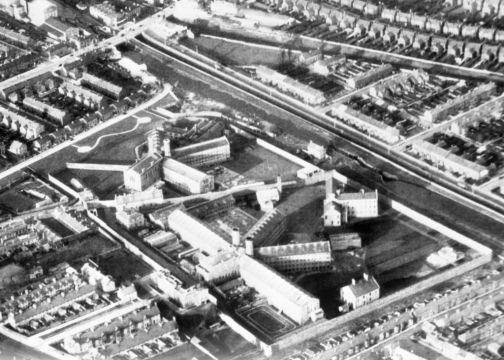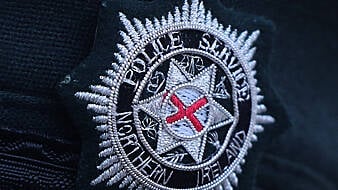The man behind an infamous helicopter hijacking which led to three IRA prisoners being airlifted to freedom from Mountjoy prison’s exercise yard has spoken publicly for the first time since the raid 48 years ago.
Brendan Hughes, who is now in his 70s and still lives in Northern Ireland, agreed to speak to former Irish Press journalist Dougie Dalby in new book 'Up Like A Bird'.
The three men who escaped from Mountjoy were members of the militant Provisional wing of the IRA.
One of them was Seamus Twomey, 54, a Belfast man, formerly the Provisional IRA's chief of staff and until his capture, one of the most wanted men in Ireland. The two others were senior republicans Kevin Mallon, 36, and JB O’Hagan, 51.
Very few of the paramilitary leaders on either side have ever spoken openly about their role in the conflict. Hughes claims he has been written out of modern Irish republican history for almost half a century, until now.
Rise through ranks
The memoir charts Hughes’ rise through the ranks of the Provisional IRA in the early 1970s, as it transformed into one of the most sophisticated guerrilla movements in the world.
Hughes reveals how a secret IRA unit planned and executed the helicopter escape and carried out a series of fundraising bank raids in the Republic. Also for the first time, he tells the inside story of how the IRA planned its mass breakout from Portlaoise Prison in 1974.
After his relationship with the IRA leadership turned sour, Hughes claims the organisation set out to execute him.
Journalist Dalby said Hughes felt “the passage of time” now allowed him to “tell his story” of his time in the paramilitary.
Hughes is one of the most disruptive personalities I have ever met
Advertisement
“Hughes is one of the most disruptive personalities I have ever met, he was the king of improvisation which lead me to creating a fast-paced novel of sorts. He turned rouge at a young age when he couldn’t secure housing for his young family at a time in Northern Ireland when the Troubles was taking over the lives of thousands of people,” said Dalby.
“While recounting his exploits in this memoir I found Hughes to have a lot humorous characteristics which made this book into somewhat of the Irish version of the Goodfellas movie.
“He took serious decisions in a time alien to now but he was not a victim of circumstance. Hughes wanted to set the record straight on his past life for his sons and daughters.”
Hijacked helicopter
The hijacked helicopter of the Mountjoy prison escape was hired by an American for filming work in Co Laois at the time.
It was arranged that the Alouette II helicopter should fly to the village of Stradbally, and when it landed it was immediately surrounded by armed men. Two of them boarded it and forced the pilot to fly to Dublin and descend on the prison yard.
The helicopter landed there just after 3.30pm on October 31st, 1973.
The three IRA prisoners struggled free from prison guards and were taken into the helicopter by the hijackers. According to witnesses, the guards were threatened with guns and the escape took less than a minute.
The helicopter, which briefly landed in the prison's exercise yard, was an embarrassment to the Irish coalition government of the time led by Fine Gael’s Liam Cosgrave. A massive manhunt involving the Defence Forces and gardaí was launched for the escapees, with Twomey only being recaptured in December 1977.
'Incompetence in security matters'
Mr Cosgrave's government was criticised for "incompetence in security matters" by opposition party Fianna Fáil.
An emergency debate on security was held in the Dáil on November 1st, where leader of the opposition Jack Lynch stated: “It is poetic justice that a helicopter is now at the heart of the government's embarrassment and in the centre of their dilemma.
“Indeed, it was hard to blame the prison officer who observed that he thought it was the Minister for Defence paying an informal visit to Mountjoy Prison because, of course, we all know the Minister for Defence is [want] to use helicopters, as somebody observed already, as other Ministers are [want] to use State cars.”
Irish band The Wolfe Tones wrote a song marking the escape called The Helicopter Song, which topped the music charts for 12 weeks within a week of their flight from Mountjoy. The escape led to paramilitary prisoners being housed in the high security Portlaoise Prison, where they are still housed.
'Up Like A Bird' goes on sale in bookshops nationwide on Friday.







